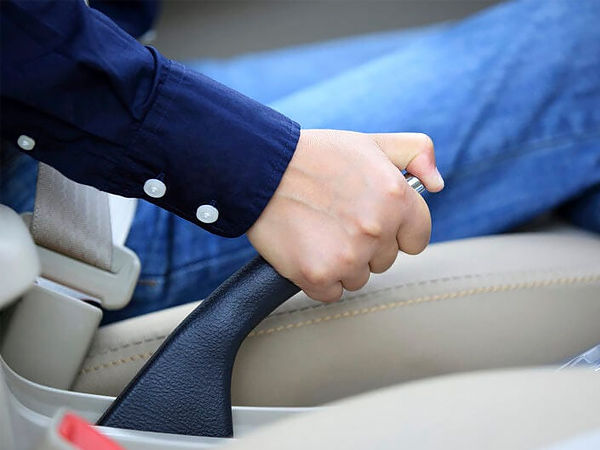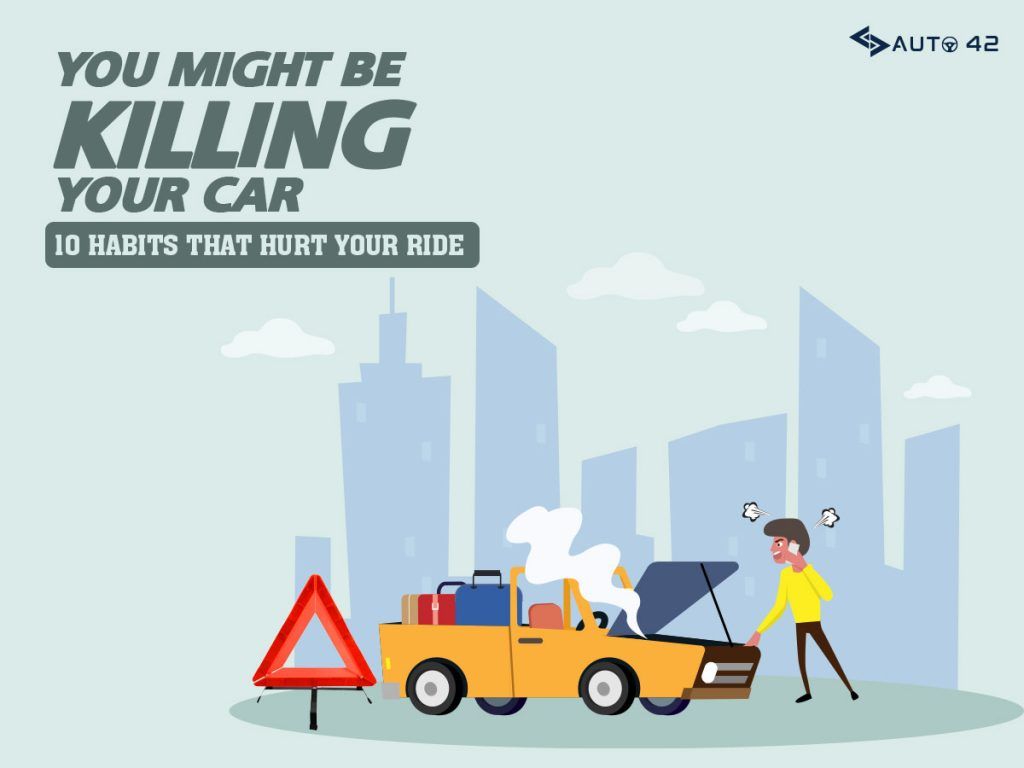A car is a large investment, and most of us want to keep it operating for as long as possible. However, our bad habits might be a car’s deadliest adversary. Which ones are you responsible for?
Your automobile is highly specialized to you as a car owner. You must provide optimal maintenance and protection to guarantee effective functioning and an extended lifetime. However, keep in mind that his care is in your hands. If you are self-driving your automobile, you have the most responsibility for the vehicle’s safety. Some of your driving behaviours are important here.
Here, we will go through the top driving habits that might cause harm to your vehicle.
Disregarding the Parking Brake

There’s no reason not to apply the parking brake even if parked on a flat surface. When you do not use the parking brake, the whole weight of your car is supported by a little piece of metal in the transmission known as the parking pawl. It’s just around the size of your finger, so it will ultimately wear out or break from carrying all that weight. Using the parking brake evens out the load, extending the life of critical transmission components.
Being stuck in high gear
You may believe that keeping the engine revs low saves gasoline, but being in too high a gear at too low a speed puts extra pressure on the engine and can damage your cylinder heads, resulting in costly repairs. Similarly, choosing a low gear that causes the engine to scream will result in unnecessary wear and tear.
Keeping the Gas Tank at an All-Time Low
Many of us have been in situations when putting Rs100 in the gas tank was the best we could do. You may not realise that paying a little extra will help prevent fuel system damage. Many fuel pumps stay cool by being submerged in the petrol in the tank, so if you frequently operate at a quarter full or less, you risk hastening the need for a fuel pump replacement. Paying a bit more for petrol may sting, but it’s not nearly as bad as requiring a new fuel pump.
Changing Gears from Reverse to Drive Suddenly
Assume you’re backing out of a parking place. You flip the gearshift and begin going forward since the coast is clear. Does this sound familiar? This may not be a big deal at first, but rapid direction shifts like this may seriously harm your drivetrain over time. Instead, before switching, reach a complete stop. It simply takes a second and will prevent future engine, gearbox, or axle problems.
Rev-Up Before the Engine Has Warmed Up
Allowing your automobile to sit for a minute or two after starting is good, and it aids in the oil distribution throughout the engine and the heating of the engine block and engine oil. The procedure will not be sped up by revving the engine, and in reality, this might result in easily prevented harm. Cold revving generates sudden temperature swings, which stress the engine’s tight-fitting components. Simply wait 60 seconds before getting on the road, and everything will be ready for dependable performance.
When You Don’t Need to Floor It
Every vehicle fan experiences the need for a full-throttle explosion now and again. You normally have to slam on the brakes to slow down, and neither is healthy for your automobile. Hard acceleration consumes a lot of gasoline (maybe not for a Tesla) and puts a lot of strain on the drivetrain components. Full-force stops wear down the brake pads and rotors quickly. Resist the impulse to drive in this manner. If you can’t, expect repair fees sooner rather than later.
Making Use of the Shifter as a Hand Rest
Driving a manual transmission automobile can be a lot of fun, and it seems natural to have one hand on the steering wheel and the other on the shift lever while rowing through the gears. Don’t. Leaving your hand on the shifter strains the transmission’s bushings and synchronizers, causing premature wear. In any case, maintain both hands on the wheel. You’ll help your transmission and be ready to take control if a rapid steering manoeuvre is required.
The gearstick is coupled to a control rod in the gearbox that includes selection forks and is meant to make brief contact with a spinning collar. If you lay your hand on the gearstick, you risk putting extra strain on the selector fork.
Abuse of the Clutch
This is something that a lot of stick-shift drivers do. When you come to a complete stop, you keep the clutch pulled to the floor. This allows you to go forward as traffic advances or take off as the light turns green. Keeping the clutch engaged when you’re stopped, on the other hand, causes its surfaces to grind against each other, wearing them down and increasing the likelihood of failure. It may also harm the release bearing, release arm, and pressure plate. Instead of riding the clutch while the shifter is in gear, select Neutral and let the clutch out. Engage the clutch, grab first, and drive when you’re ready to go.
Also Read, Oil Leak in you Engine: 8 Reasons What Causes Them and How to Fix Em
Downhill Brake Riding
You may have to brake to avoid going too quickly when travelling downhill. However, this causes heat to build up in the brake pads and rotors, producing wear and increasing the danger of overheating or warping. Try shifting into a lower gear as a workaround. The natural decompression in the drivetrain will aid in keeping the automobile at a safe pace. That way, if you do need to use the brakes, they will be more effective.
Carrying an Excessive Amount of Weight
It’s as simple as that: the more a car weighs, the more strain it puts on its powertrain, suspension, and brakes, and the more gasoline it uses. Make every effort to keep your vehicle as light as feasible. We’re not proposing removing the air conditioning or music system but rather clearing away any extra clutter. While removing a few pounds of weight may just offer you an extra mile on a tank of petrol, it can significantly impact the long term. Make sure your automobile is loaded with the daily necessities and keep the remainder someplace else.
Ignoring Warning Signs
When anything is wrong with your automobile, it will most likely try to inform you. Any weird vibrations, squeaks, knocks, or other peculiar symptoms should be investigated immediately. You may not notice any difficulties, but the longer you wait, the greater trouble you may face if a part breaks unexpectedly and leaves you stuck on the side of the road.
Aside from this, you should never overlook the many warning indicators that your car may provide. Ignoring these signs may result in more mechanical damage inside. You should also keep an eye on your gasoline tank and maintain it filled. An often empty gasoline tank might be harmful to the health of your beloved automobile. Suppose you keep these elements in mind and drive carefully. In that case, you will assure correct operation and prevent any accidents or damages that may invalidate your NO CLAIM BONUS during insurance renewal.
